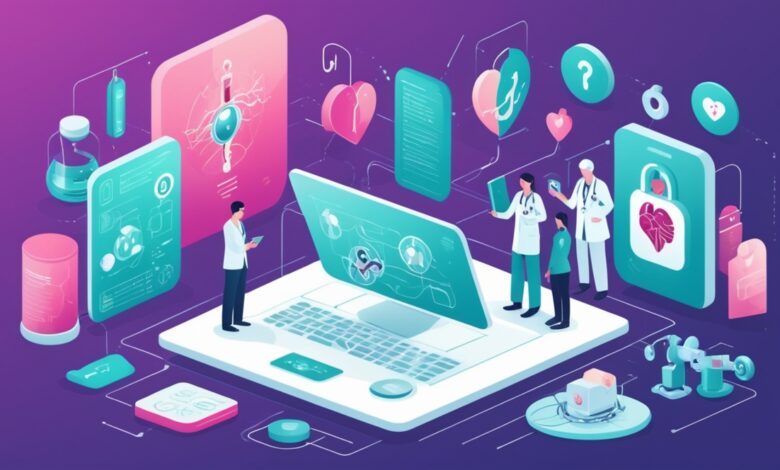Unlock the Future of Healthcare with AI: Applications & Benefits

Explore AI’s Transformative Power in Healthcare Through Its Applications and Benefits
Meta Description: Discover how artificial intelligence is revolutionizing healthcare. Dive into the applications of AI in healthcare and discover its advantages and its transformative impact on medicine’s future. Stay ahead of the curve!
Introduction to AI in Healthcare
AI creates industry-wide transformations and healthcare stands as one of those affected sectors. Artificial intelligence is revolutionizing medical practices by transforming disease diagnosis and treatment through advanced predictive analytics and personalized medicine. How does AI impact patients, healthcare providers and the entire medical system?
Healthcare systems are incorporating AI technologies to achieve better patient outcomes while simultaneously reducing expenses and increasing operational efficiency. This article examines the main uses and advantages of AI technology within healthcare.
Key Applications of AI in Healthcare
- Disease Diagnosis and Prediction
Machine learning algorithms serve as AI-powered tools that enable quicker and higher accuracy in medical data analysis compared to human capabilities. For example:
Medical imaging analysis by AI systems enables early detection of diseases including cancer, diabetes and heart conditions.
Predictive models identify high-risk patients for chronic illnesses to enable preventive interventions.
- Personalized Medicine
AI systems create customized treatment plans through the analysis of patient genetic data along with their lifestyle patterns and medical backgrounds. Patients benefit from more effective therapies with minimal side effects through personalized treatment approaches. - Drug Discovery and Development
Traditional methods of discovering drugs require a significant amount of time and financial resources. AI accelerates this process by:
Identifying potential drug candidates.
Simulating how drugs interact with biological systems.
AI technology enables faster and less expensive clinical trial processes.
- Virtual Health Assistants and Chatbots
Patients receive continuous access to support through AI-powered chatbots and virtual assistants that operate 24 hours a day. They can:
Answer common health-related questions.
Schedule appointments.
Remind patients to take medications.
- Robotic Surgery
AI-driven robotic-assisted surgeries deliver superior precision and accuracy beyond human capacities. These systems decrease surgical invasiveness while shortening recovery periods and enhancing surgical results.
Benefits of AI in Healthcare
- Improved Patient Outcomes
The use of AI in healthcare improves diagnostic precision and treatment results which results in enhanced patient outcomes. The prompt identification of illnesses combined with tailored medical treatments guarantee prompt healthcare actions. - Cost Efficiency
The automation of repetitive tasks by AI and optimization of workflows help healthcare providers cut their operational expenses. AI helps reduce errors that often result in expensive complications. - Enhanced Accessibility
Telemedicine platforms with AI and mobile healthcare apps extend medical services to populations in remote areas who lack access. Medical advice and doctor consultations are available to patients regardless of their geographical location. - Data-Driven Decision Making
AI processes large healthcare data sets to generate meaningful insights. AI analysis enables doctors and administrators to make better decisions which leads to improved healthcare delivery outcomes.
Challenges and Ethical Considerations
The remarkable possibilities of AI come with various obstacles that need to be addressed.
Data privacy concerns.
Bias in AI algorithms.
The development of regulatory frameworks remains essential to maintain safety and ethical standards in practice.
Solving these issues is essential for achieving maximum AI benefits in healthcare.
Conclusion
The adoption of AI in healthcare represents a fundamental shift in medical practices rather than a passing trend. The use of AI technologies enables us to build a healthcare future that delivers enhanced accuracy and efficiency while improving accessibility. The healthcare industry will experience a stronger impact from AI as it continues to develop.
Are you prepared to welcome healthcare’s future advancements? Stay informed, stay ahead!